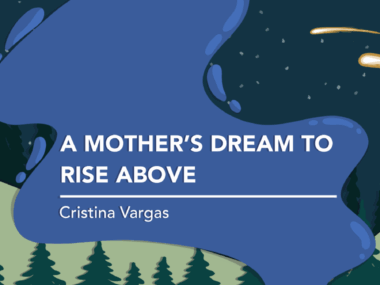Why the Fight Against Rare Disease Is Like High-stakes Soccer
Written by |

We all wish we could relive experiences from our childhood — those fleeting moments that turn into minutes and hours and days faster than we can say graduation. My own daydreams often place me on a soccer field somewhere in the southeastern United States, where I can almost smell the game’s unique blend of dirt and sweat and freshly mowed fescue.
I don’t play anymore, as injuries made me give up the sport in my early 30s. But I still run like the midfielder I once was, logging over 30 miles a week and racing in my sister Taylor’s memory all over the country. In this year of COVID-19 cancellations, I’ve kept up my training, as much for my mental health as for the health of my heart, lungs, and legs.
During a run one recent Saturday, I came across a playing field dotted with kids. Socially distanced parents and siblings decorated the sidelines, their shouts and cheers breaking the relative silence for a runner who runs without music. Even though they were too young to understand proper spacing and vaguely resembled a swarm of bees, they made me long for the beautiful game.
The qualities that make soccer beautiful are also why it doesn’t have the mass appeal in the U.S. that it does in most other countries around the world. For example:
- It’s a low-scoring game.
- The beauty is in the buildup.
- Teamwork fuels wins, though individual performances occasionally shine.
- Though the rewards may be rare, they’re invaluable.
I’m happiest running alone, yet I’ve always loved the team aspect of soccer. Yes, one person ultimately puts the ball in the back of the net, but teams that want to win consistently must field 11 players who understand their individual role and the roles of their teammates.
The most crucial game
The fight against rare disease — certainly the fight against Batten disease — is a little like soccer. Think about the rare disease communities that are making the most headway toward promising treatments and accessible services. Usually, they’re well-connected, with a strong central organization, active patient community, engaged medical community, and scientific experts who act more like teammates than competitors.
Collaboration is something my friend, fellow author, and rare disease advocate David Fajgenbaum, MD, spends a lot of time championing. Founder of the Castleman Disease Collaborative Network, he’s shown the power of teamwork to track down and destroy even the most elusive opponent. In 2020, he’s taking that approach to the fight against COVID-19, helping find leads in the effort to treat the novel coronavirus.
We’re starting to see similar action in the Batten disease community, and at Taylor’s Tale, we’re lucky to work with an expert like Steven Gray, PhD. Steve isn’t afraid to share credit, and his work makes it out of the lab because he starts with the answer and works backward from there.
I’ve watched this rare disease game — a game with real lives at stake — since my sister’s CLN1 disease diagnosis on a hot summer day in 2006. Not as a fan, but instead as a team member ready to leave the bench and join the experts whenever my name gets called. I’ve seen progress happen almost like magic when everyone plays well together. I’ve also seen the game grind to a halt when people stop passing the ball to one another.
If we really want to change lives — even save them — we have to work together. Pass the ball, within and beyond our own specific patient communities. And to win the game, we need every last player willing to leap off that bench and into the game.
Are you in?
***
Note: Batten Disease News is strictly a news and information website about the disease. It does not provide medical advice, diagnosis, or treatment. This content is not intended to be a substitute for professional medical advice, diagnosis, or treatment. Always seek the advice of your physician or other qualified health provider with any questions you may have regarding a medical condition. Never disregard professional medical advice or delay in seeking it because of something you have read on this website. The opinions expressed in this column are not those of Batten Disease News or its parent company, Bionews, and are intended to spark discussion about issues pertaining to Batten disease.





Leave a comment
Fill in the required fields to post. Your email address will not be published.